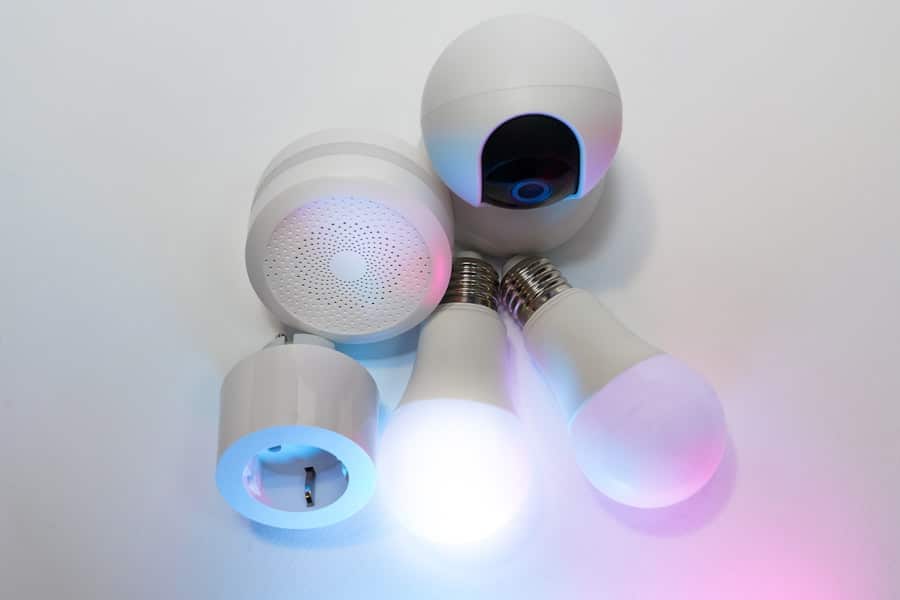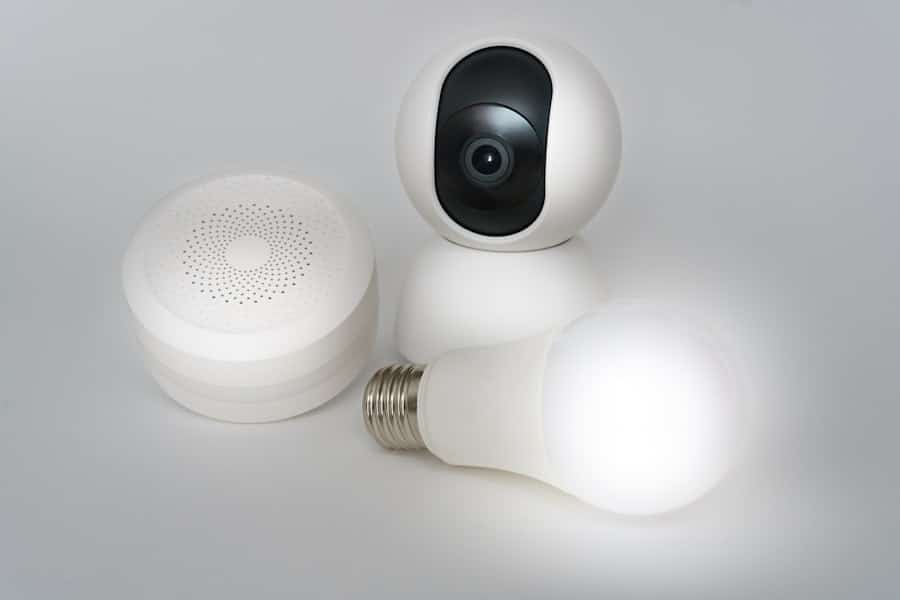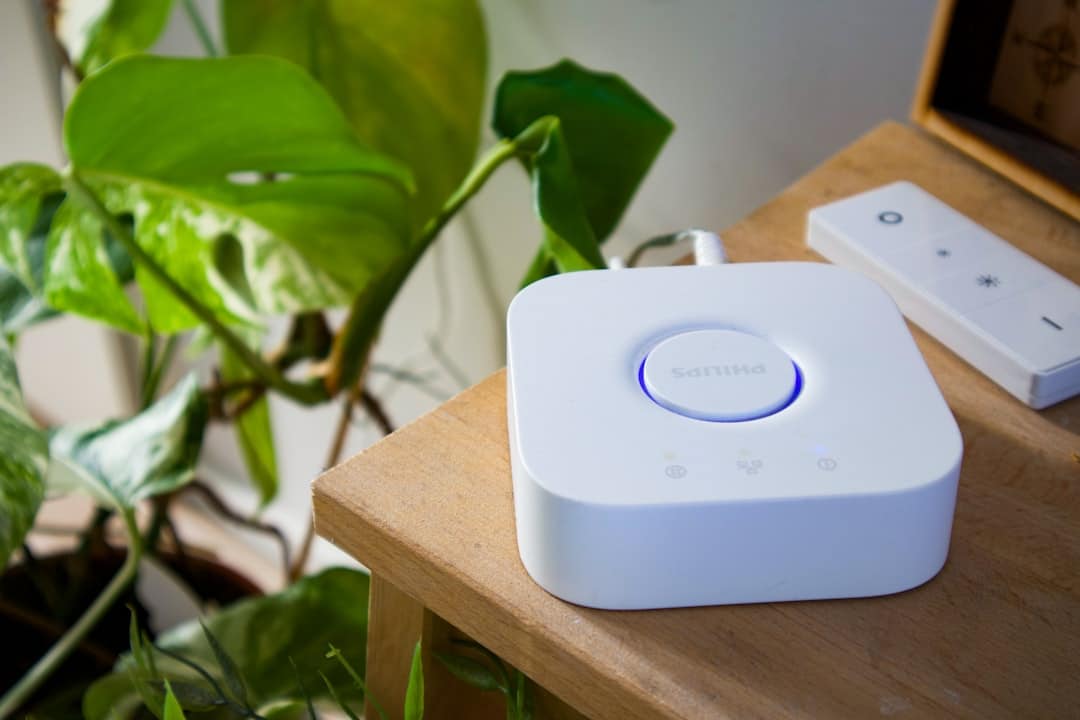The concept of smart home hubs has undergone a remarkable transformation since its inception. Initially, these devices served as simple controllers for various smart home gadgets, allowing users to manage their lights, thermostats, and security systems from a single interface. Early iterations were often limited in functionality, requiring users to navigate through multiple apps and interfaces to control different devices.
This fragmentation led to a demand for a more cohesive solution, prompting manufacturers to develop centralized hubs that could communicate with a wide range of devices across different protocols. As technology advanced, so did the capabilities of smart home hubs. The introduction of wireless communication standards such as Zigbee and Z-Wave allowed these hubs to connect with an ever-expanding array of devices, from smart locks to environmental sensors.
This evolution was further accelerated by the rise of cloud computing, which enabled hubs to leverage remote servers for processing and data storage. Consequently, modern smart home hubs are not only capable of controlling devices but also of learning user preferences and adapting to their routines. This shift has transformed them into intelligent systems that enhance the overall user experience, making homes more efficient and responsive.
Key Takeaways
- Smart home hubs have evolved to become more powerful and versatile, integrating various technologies for a seamless user experience.
- Artificial intelligence is now a key component of smart home hubs, enabling them to learn and adapt to users’ preferences and habits.
- Voice recognition technology has been significantly improved, allowing for more natural and accurate interactions with smart home hubs.
- Advanced sensors in smart home hubs enable them to gather and analyze data for better automation and predictive analytics.
- Personalized user experiences are now a priority, with smart home hubs customizing settings and recommendations based on individual preferences.
Integration of Artificial Intelligence
Artificial intelligence (AI) has become a cornerstone of modern smart home technology, significantly enhancing the functionality of smart home hubs. By integrating AI algorithms, these hubs can analyze user behavior and preferences, allowing them to make informed decisions about home automation. For instance, an AI-enabled hub can learn when a user typically arrives home and adjust the lighting and temperature accordingly, creating a welcoming environment without any manual input.
This level of personalization not only improves convenience but also contributes to energy efficiency by optimizing resource usage.
Advanced machine learning models can predict user needs based on historical data, enabling proactive responses to various situations.
For example, if a user frequently turns on the coffee maker at a specific time each morning, the hub can automatically initiate the brewing process even before the user arrives in the kitchen. This predictive capability enhances the overall smart home experience, making it feel more intuitive and responsive to individual lifestyles. As AI continues to evolve, we can expect even more sophisticated interactions between users and their smart home systems.
Enhanced Voice Recognition Technology

Voice recognition technology has revolutionized the way users interact with their smart home hubs. Early voice assistants were often limited in their ability to understand natural language, requiring users to issue commands in a specific format. However, advancements in natural language processing (NLP) have led to significant improvements in voice recognition accuracy and responsiveness.
Modern smart home hubs can now comprehend complex commands and contextual nuances, allowing for a more conversational interaction. For example, instead of simply saying “turn on the lights,” users can now issue commands like “dim the living room lights to 50 percent” or “turn on the kitchen lights when I get home.” This enhanced capability not only makes interactions more user-friendly but also allows for greater control over various devices within the smart home ecosystem. Additionally, voice recognition technology has become more adept at distinguishing between different users’ voices, enabling personalized responses based on individual preferences.
This level of customization fosters a deeper connection between users and their smart home systems, making them feel more like companions than mere tools.
Advanced Sensor Capabilities
The integration of advanced sensor technologies into smart home hubs has significantly expanded their functionality and versatility. Modern hubs are equipped with a variety of sensors that can monitor environmental conditions such as temperature, humidity, motion, and light levels. These sensors provide real-time data that can be used to automate various aspects of the home environment.
For instance, a smart hub can adjust the thermostat based on occupancy detected by motion sensors or close blinds when excessive sunlight is detected. Furthermore, advanced sensors enable enhanced security features within smart home systems. For example, door and window sensors can alert homeowners when an entry point is breached, while motion detectors can trigger alarms or notify users via their smartphones if unusual activity is detected.
The ability to integrate multiple sensor types into a single hub allows for comprehensive monitoring and control of the home environment, providing users with peace of mind and greater energy efficiency. As sensor technology continues to advance, we can expect even more innovative applications that will further enhance the capabilities of smart home hubs.
Personalized User Experiences
Personalization is at the heart of modern smart home technology, with hubs increasingly designed to cater to individual user preferences and lifestyles. By leveraging data collected from various devices and user interactions, smart home hubs can create tailored experiences that enhance comfort and convenience. For instance, a hub might learn that a user prefers cooler temperatures at night and automatically adjust the thermostat accordingly as bedtime approaches.
Additionally, personalized experiences extend beyond environmental controls. Smart home hubs can curate entertainment options based on user preferences, suggesting music playlists or streaming content that aligns with individual tastes. This level of customization fosters a sense of ownership over the smart home environment, making it feel uniquely suited to each user’s needs.
As manufacturers continue to prioritize personalization in their designs, we can expect even more sophisticated algorithms that adapt to changing preferences over time.
Automation and Predictive Analytics

Unlocking the Potential of Predictive Analytics
The true power of automation lies in its ability to leverage predictive analytics, which involves analyzing historical data to forecast future behavior or needs. By doing so, smart hubs can anticipate and respond to users’ needs without requiring manual input. For example, if a user consistently turns on their outdoor lights at sunset during the summer months, a smart hub equipped with predictive analytics can automatically activate those lights as dusk approaches.
Enhancing Convenience and Energy Efficiency
This proactive approach not only enhances convenience but also contributes to energy savings by ensuring that devices operate only when needed. By automating routine tasks, users can enjoy a more streamlined and efficient living experience.
The Future of Automation
As predictive analytics becomes more sophisticated, we can expect even greater levels of automation that will further simplify daily routines. With the continued advancement of smart home technology, the possibilities for automation are endless, promising a future where our homes are more comfortable, convenient, and sustainable than ever before.
Improved Security Features
Security is a paramount concern for homeowners, and modern smart home hubs have risen to meet this challenge with enhanced security features. These hubs often integrate with various security devices such as cameras, doorbell cameras, motion detectors, and smart locks to create a comprehensive security ecosystem. Users can monitor their homes remotely through mobile apps, receiving real-time alerts about potential security breaches or unusual activity.
Moreover, advanced security features often include facial recognition technology that allows users to identify visitors before granting access to their homes. Some systems even offer geofencing capabilities that automatically lock doors when users leave a designated area or unlock them as they approach their homes. These innovations not only enhance security but also provide users with greater control over their living environments.
As cyber threats continue to evolve, manufacturers are likely to invest further in robust security measures that protect both physical spaces and personal data.
Future Innovations and Trends
Looking ahead, the future of smart home hubs promises exciting innovations driven by emerging technologies and evolving consumer demands. One notable trend is the increasing integration of Internet of Things (IoT) devices into everyday life. As more appliances and gadgets become connected to the internet, smart home hubs will need to adapt to manage an ever-expanding ecosystem of devices seamlessly.
Another anticipated innovation is the rise of decentralized systems powered by blockchain technology. This could enhance security and privacy by allowing users to maintain greater control over their data while interacting with various devices within their homes. Additionally, advancements in energy management technologies may lead to smarter energy consumption practices within homes, enabling users to optimize their energy usage based on real-time data.
Furthermore, as sustainability becomes an increasingly important consideration for consumers, future smart home hubs may incorporate features that promote eco-friendly practices. This could include monitoring energy consumption patterns and suggesting ways to reduce waste or integrating renewable energy sources into home energy management systems. In conclusion, the evolution of smart home hubs reflects a dynamic interplay between technological advancements and user needs.
From enhanced voice recognition capabilities to advanced sensor technologies and personalized experiences, these hubs are becoming integral components of modern living spaces. As we look toward the future, ongoing innovations will undoubtedly shape how we interact with our homes, making them smarter, safer, and more efficient than ever before.
If you’re interested in the latest advancements in technology, you may also want to check out the article on the new world of possibilities with the Samsung Galaxy Chromebook 4. This article explores how this innovative device is changing the way we work and play, offering a glimpse into the future of computing. Just like smart home hubs are becoming more intelligent, the Samsung Galaxy Chromebook 4 is pushing the boundaries of what is possible with technology.
FAQs
What is a smart home hub?
A smart home hub is a central device that connects and controls various smart home devices and appliances, such as lights, thermostats, security cameras, and more.
How are smart home hubs becoming more intelligent?
Smart home hubs are becoming more intelligent through advancements in artificial intelligence, machine learning, and natural language processing. This allows them to better understand and anticipate user preferences and automate tasks more effectively.
What are some examples of intelligent features in smart home hubs?
Intelligent features in smart home hubs include voice control, predictive analytics, adaptive learning, and the ability to integrate with a wide range of smart devices and platforms.
How do intelligent smart home hubs improve the user experience?
Intelligent smart home hubs improve the user experience by making it easier to control and manage multiple smart devices, automating routine tasks, and providing personalized recommendations and insights based on user behavior and preferences.
What are the potential benefits of using intelligent smart home hubs?
The potential benefits of using intelligent smart home hubs include increased convenience, energy efficiency, home security, and overall comfort and control over the smart home environment.

